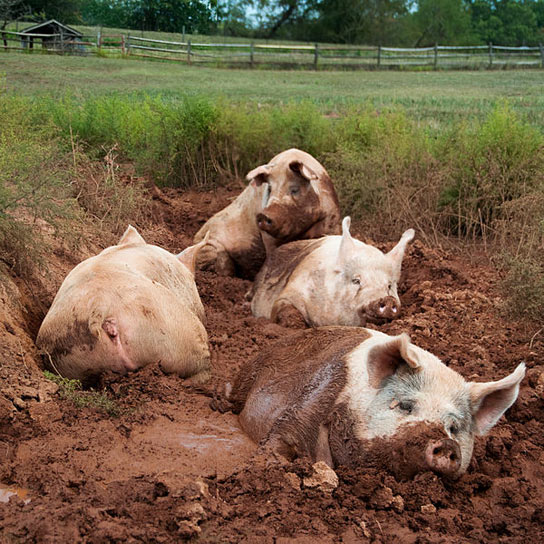Full Genome of Domestic Pig Will Benefit Farmers & Researchers
November 15, 2012

Photo by Eric Cheng
The scientists published their findings in the journal Nature. This reference genome could even allow pigs to be engineered to provide organs for transplant into human patients.

Pigs in Yorkshire pig sanctuary. Image via Wikipedia
The NIH launched the NSRRC in 2003 to encourage new research in pig disease models. Pigs are more expensive to keep than rodents, and reproduce slower, but the similarities between pig and human anatomy as well as physiology can often be a benefit in research. Pig models have been used to create models of diseases, which have similar symptoms in humans.
Pig models are being developed for common conditions, like Alzheimer’s disease, cancer, and muscular dystrophy. The paper reports that 112 gene variants could be involved in human diseases. Knowledge of the genome also allows scientists to engineer pigs that could be a source of organs, including heart and liver, for humans.
The full genome will allow investigators to breed out susceptibility to porcine reproductive and respiratory syndrome (PRRS), a disease which costs the US pig industry $600 million per year.
Genome researchers have also shown by sequencing the genomes of different strains of wild and domestic pigs that the pig was domesticated independently in Asia and Europe.
No comments:
Post a Comment